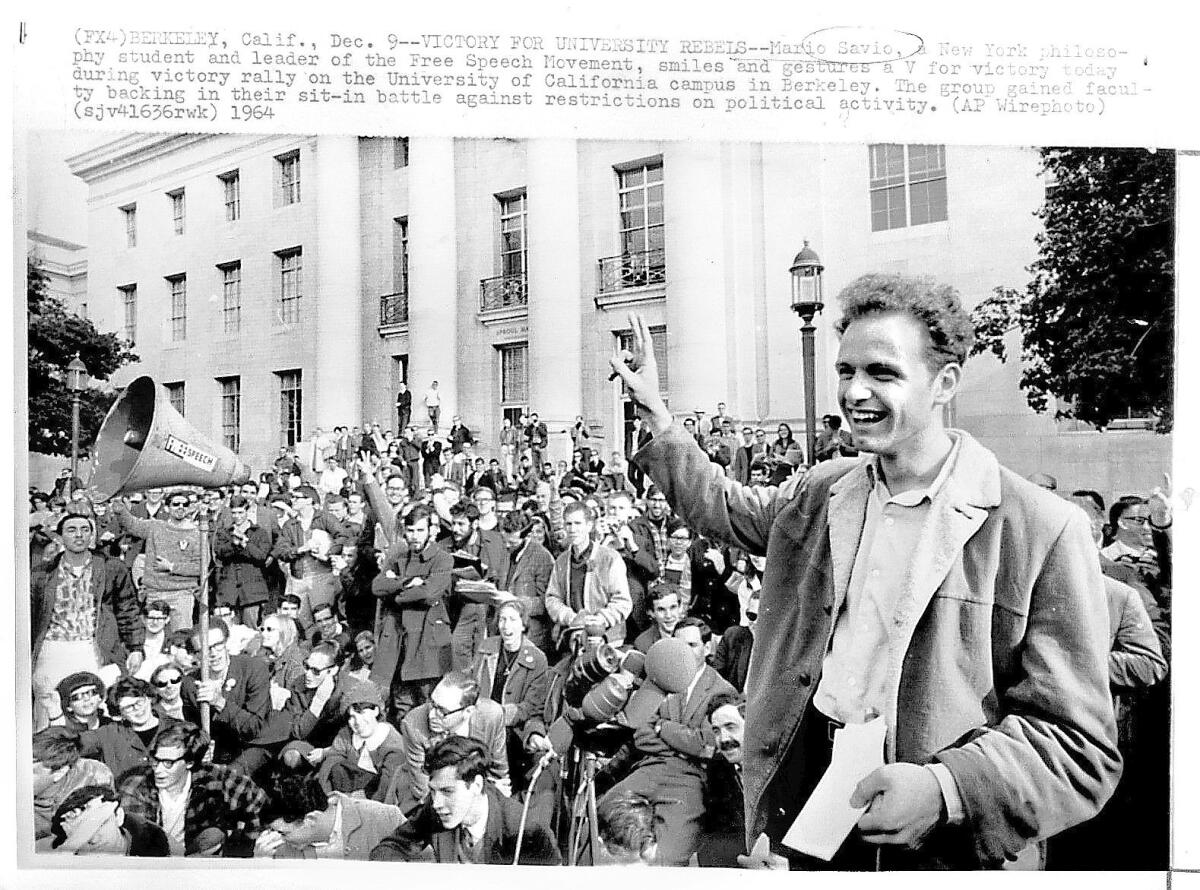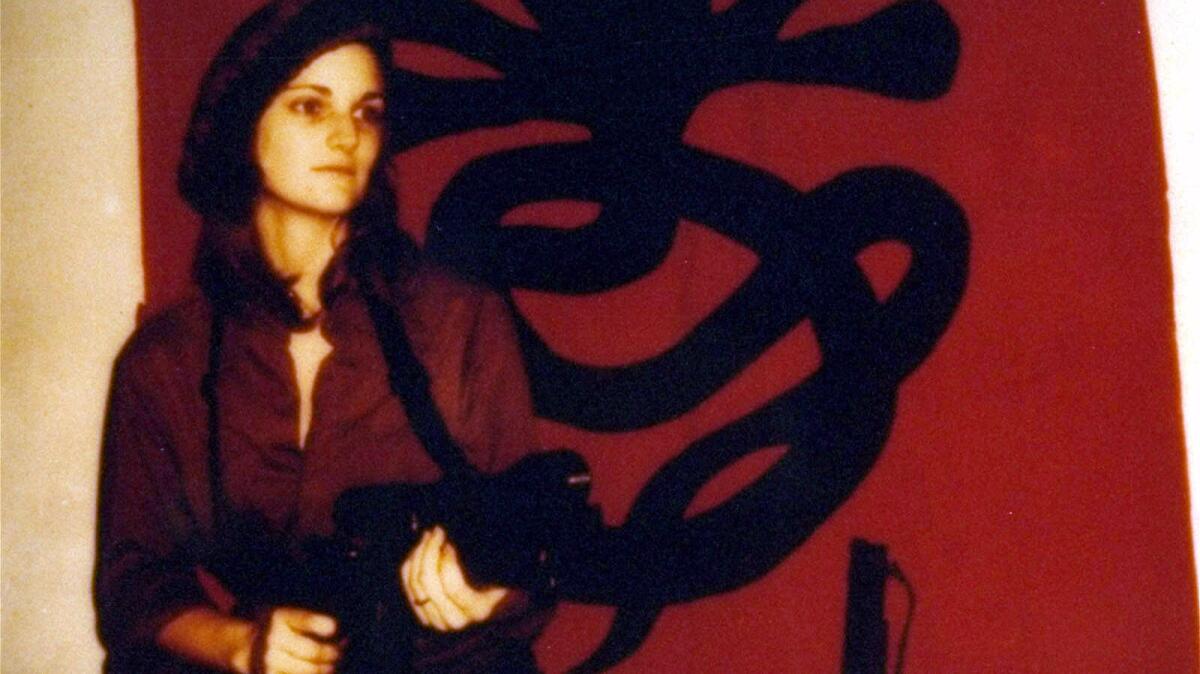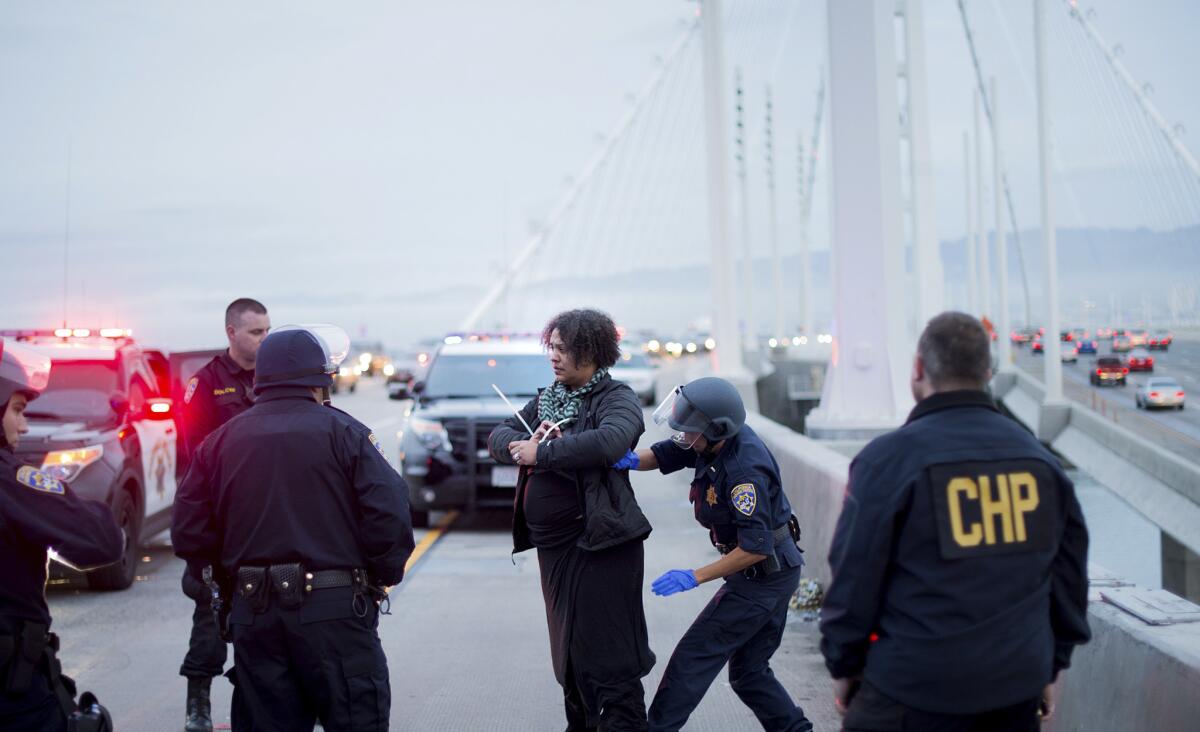How the Bay Area turned the protest movement into a way of life
- Share via
Over more than five decades, the Bay Area has been the epicenter of protest movements like no other region in the United States.
Free speech rights. The Vietnam War. Racial injustice. The nuclear bomb. U.S. policy in Central America. Wars in the Middle East. The AIDS crisis. Economic inequities. Police brutality. Animal rights. Tree preservation. Wall Street and even sugary soda pop.
All these hot topics and many more have brought protesters to the streets, mostly peacefully, but at times with violence.
Chicago, New York and Los Angeles have their natural histories of political movement, but “the Bay Area has a special place as one of dissent,” said Ramsey Kanaan, founder of a left-wing book publishing company. “One of the misinterpretations is that the Bay area is a liberal place, but it has become liberal by what it opposed.”

WEEKEND PROTESTS? OR NOT
The left, the right, and some dogs too
Those dynamics help explains all the attention being paid to two now aborted rallies by far-right supporters of
Amid concerns about violence, organizers of the rallies in San Francisco and Berkeley announced Friday afternoon they were canceled. But officials said they will still be out in force, and it remains unclear whether some activists will show up anyway.
A signal to the expected size of the demonstrations: the San Francisco Police Department has canceled days off and ordered every officer on duty.
And this being the Bay Area, some people plan to bring their dogs to the event Saturday and then leave dog droppings behind in a counter-protest against the right-wing forces.
A second protest is planned Sunday in Berkeley, whose potency as a symbol for liberalism centers on its role as birthplace of the Free Speech Movement in 1964.

A HISTORY OF ACTIVISM
Free speech, Black Panthers, SLA and Earth First!
Students such as Mario Savio returned from searing experiences as civil rights workers in the South and sought to expand those campaigns in California, upsetting some state legislators. Their politicking was limited to a small sidewalk strip thought to be off-campus and immune from university restrictions.
After learning that the property was owned by UC, school authorities moved to ban the tables and pamphleteers. Activists ignored the rules and resumed their activities. Three months of ever-increasing confrontations, arrests and demonstrations of crowds as large as 10,000 followed, capturing international attention. Eventually, the restrictions were lifted with some limitations — a victory that paved the way for later protests supporting women's rights and environmentalism and opposing the Vietnam War.
Jo Freeman, a Berkeley student radical in the 1960s and today a New York-based author and political scientist, said the newly empowered student groups of Berkeley then began inviting a host of controversial speakers, “including
The Black Panther Party rose out of Oakland in 1966 as a street militia against city police the movement accused of brutalizing African Americans. The next spring, with shotguns and rifles, they occupied the state Capitol in Sacramento.
In the 1970s, some of the activism took on more violent, criminal undertones. Symbionese Liberation Army members would kidnap the heiress Patty Hearst and assassinate Marcus Foster, the Oakland schools superintendent.
Judi Bari, a firebrand Earth First! organizer, was seriously injured when a pipe bomb exploded under her car seat in Oakland on the eve of the 1990 "Redwood Summer" anti-logging protest. Conspiracy theories continue to surround the incident.

IN THE AGE OF TRUMP
A hub for the far left
In recent years, Bay Area protests have focused on income inequity and issues of race and policing. In 2009, protesters took to the streets in anger over the shooting of a young black man, Oscar Grant, by a
In 2011, Bay area activists again went head to head with police during the Occupy protests against Wall Street’s financial excesses, until campus police at UC Berkeley used batons to rout demonstrators who would not leave their tents.
Oakland, too, has emerged as the western hub for anarchist movements, and radical publishing houses including the AK Press and now the PM Press, which rolls out “No Trump, No KKK, No Fascist USA” T-shirts for the current round of events.
That anarchist and socialist community in turn has incubated activists sworn to direct action, adopting tactics of Europe’s black bloc to disrupt events or wage counter protest, lobbing pepper spray and M-80 firecrackers, and smashing windows.
Since Trump’s election, far-left and far-right protesters have clashed several times at Berkeley. Some in the university town decry the violence, blaming it on outsiders who come to make trouble and seek media attention. However, most of those facing criminal charges for protest violence in March and April hail from the Bay Area.
Hoping to avoid trouble on Sunday, city officials have expressly banned weapons, sticks, projectiles and even soda cans from gatherings of more than 100 people within the city limits.
Even though both rallies now formally canceled, police said they still plan heavy deployments and a zero-tolerance policy for bad behavior. In the Bay Area, you never know when a new protest might crop up.
ALSO
Berkeley right-wing protest organizer explains cancelation in letter
Organizers of far-right rallies in San Francisco and Berkeley cancel weekend events
In response to Charlottesville, Glendale City Council proclaims stance against hate
Sign up for Essential California
The most important California stories and recommendations in your inbox every morning.
You may occasionally receive promotional content from the Los Angeles Times.








